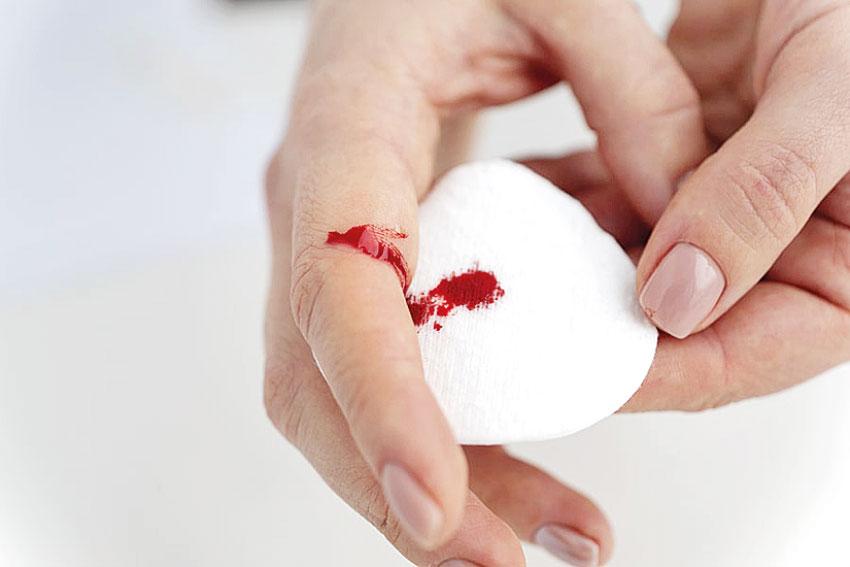Reply To:
Name - Reply Comment

 The wave of Covid 19 pandemic is still in the process of hitting the shores and creating a significant impact on our day to day lives and new normalcy run by several adaptations to this critical time is trying to cope up with the challenges, at its best. The vaccination process against SARS-CoV-2 virus is successfully handling the situation thanks to latest advancements in science and on today’s Health Capsule we are going to shed light on the impact of these injections on Haemophilia patients.
The wave of Covid 19 pandemic is still in the process of hitting the shores and creating a significant impact on our day to day lives and new normalcy run by several adaptations to this critical time is trying to cope up with the challenges, at its best. The vaccination process against SARS-CoV-2 virus is successfully handling the situation thanks to latest advancements in science and on today’s Health Capsule we are going to shed light on the impact of these injections on Haemophilia patients.
 “Haemophilia is an inherited bleeding disorder in which blood does not clot properly following an injury. There is a deficiency of clotting factors by birth and that leads to an impairment of the normal process called haemostasis which takes place following an injury. This leads to spontaneous bleeding as well as excessive bleeding following injury or surgery. This causative genetic mutation inherits through the X chromosome and hence males get the disease and females act as carriers” explained Dr.Dilini Jayaratne, Consultant Haematologist, Teaching Hospital Anuradhapura.
“Haemophilia is an inherited bleeding disorder in which blood does not clot properly following an injury. There is a deficiency of clotting factors by birth and that leads to an impairment of the normal process called haemostasis which takes place following an injury. This leads to spontaneous bleeding as well as excessive bleeding following injury or surgery. This causative genetic mutation inherits through the X chromosome and hence males get the disease and females act as carriers” explained Dr.Dilini Jayaratne, Consultant Haematologist, Teaching Hospital Anuradhapura.
There are mainly two types of Haemophilia called A and B in which there is a deficiency of clotting factor viii and ix respectively. The disease severity is classified as mild, moderate, and severe based on the amount of factor level present in one’s blood.
COVID-19 vaccine on patients with bleeding disorders
To this date, no contraindications have been identified on being vaccinated with any type of covid vaccine that are currently available for people with bleeding disorders and the same applies to patients with Haemophilia as well.
“However, people with bleeding disorders are not at a greater risk of contracting COVID-19 or developing a severe form of the disease, so they are not considered a priority group for vaccination.
“In fact, we should encourage vaccination in this community because those who contract COVID-19 can sometimes develop blood clots that require treatment with blood thinners, and this treatment would need to be carefully managed and very much challenging if someone also has a bleeding disorder,” Dr Jayaratne underscored.
Tackling the risk of excessive bleeding
Haemophilic patients are at a high risk of bleeding following Intramuscular injections in general so if possible, a needle with the smallest gauge can be used (25 to 27 gauge) to administer the vaccine. However, the use of an alternative needle is not always possible because some vaccines must be administered using the accompanying needle–syringe combination.
“Firm pressure should be applied to the site for at least 10 minutes post-injection to reduce bleeding and swelling. Additionally, check the injection site for 2 to 4 hours after vaccination to ensure that there is no delayed hematoma. Application of ice pack is also useful if you see any slightest swelling. Arm discomfort for 1 or 2 days after injection is normal, unless it worsens and is accompanied by swelling,” Dr Jayaratne explained.
Safety precautions prior to vaccine
According to the doctor when treating patients with severe or moderate haemophilia the vaccine should be given after a factor VIII (FVIII) or factor IX (FIX) injection whereas for patients with mild disease a basal FVIII or FIX level above 10%, no hemostatic precautions are required.
Also, patients on emicizumab treatment (with or without an inhibitor) can be vaccinated by intramuscular injections at any time without hemostatic precautions and without receiving a dose of FVIII. Haemophilia patients are not at a higher risk of developing allergic reactions for the vaccine
However, if they experience an allergic reaction following vaccination they should seek immediate medical help or go to the nearest hospital emergency unit as these reactions could be life threatening.
“Additionally, patients with a history of allergic reactions to extended half-life clotting factor concentrates containing polyethylene glycol (PEG) should discuss vaccine choice with their physician because some vaccines contain PEG” concluded Dr Jayaratne.